I love to read. By God’s grace I am a pretty fast reader; I usually read a couple books each week. I find it helpful to summarize my thoughts on each book and I offer those thoughts in hopes that you will be encouraged to either read or pass over the given title.
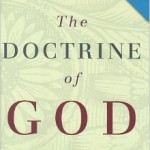 Doctrine of God by John Frame. I started this book back in April with a few men in our church and finally wrapped it up this week, thus completing eighteen months of learning at the feet of the good perspectivalist. DG is the second volume in his “Theology of Lordship” series, but for a variety of different reasons I read the other three first. Frame’s extended discussion on the lordship attributes of control, authority, and presence are illuminating and helpful, and I anticipate returning to his discussion on “some problem areas” (Human Responsibility and Divine Sovereignty, The Problem of Evil) for quite some time. Frame flips the script on the traditional ordering of theology proper choosing to deal with the acts of God before the attributes of God. I prefer the traditional ordering and Frame’s order seems to be novel for the sake of being novel. Nevertheless, the book is quintessential Frame – winsome, clear, and abounding with triads. Andy Nasselli is right to say, “If John Frame were a basketball player, he would shoot only 3s.”
Doctrine of God by John Frame. I started this book back in April with a few men in our church and finally wrapped it up this week, thus completing eighteen months of learning at the feet of the good perspectivalist. DG is the second volume in his “Theology of Lordship” series, but for a variety of different reasons I read the other three first. Frame’s extended discussion on the lordship attributes of control, authority, and presence are illuminating and helpful, and I anticipate returning to his discussion on “some problem areas” (Human Responsibility and Divine Sovereignty, The Problem of Evil) for quite some time. Frame flips the script on the traditional ordering of theology proper choosing to deal with the acts of God before the attributes of God. I prefer the traditional ordering and Frame’s order seems to be novel for the sake of being novel. Nevertheless, the book is quintessential Frame – winsome, clear, and abounding with triads. Andy Nasselli is right to say, “If John Frame were a basketball player, he would shoot only 3s.”
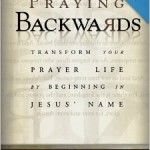 Praying Backwards: Transform Your Prayer Life by Beginning in Jesus’ Name by Bryan Chapell. “Actually saying the words “in Jesus’ name” at the beginning of our prayer is not really the point. The message of this book is to put first in our hearts what those words are supposed to mean: ‘I offer this prayer for Jesus’ sake'” (15-16). Chapell succeeds in challenging Christians to be less self-oriented in prayer and more concerned with Christ’s priorities. Like his other popular books, the book is taken up with too much illustration for my taste. But this is a valuable contribution nonetheless.
Praying Backwards: Transform Your Prayer Life by Beginning in Jesus’ Name by Bryan Chapell. “Actually saying the words “in Jesus’ name” at the beginning of our prayer is not really the point. The message of this book is to put first in our hearts what those words are supposed to mean: ‘I offer this prayer for Jesus’ sake'” (15-16). Chapell succeeds in challenging Christians to be less self-oriented in prayer and more concerned with Christ’s priorities. Like his other popular books, the book is taken up with too much illustration for my taste. But this is a valuable contribution nonetheless.
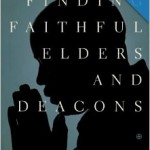 Finding Faithful Elders and Deacons by Thabiti Anyabwile. I reread this book yesterday in preparation for our church’s monthly men’s gathering and, my my, this book is good! Anyabwile writes, “This book does not delve into a lot of detailed argumentation, hoping instead to make application easily and quickly” (15). He takes each qualification for office-bearers and then shows how that requirement will manifest itself in a man’s life. I’ve always felt that Thabiti has uncommon wisdom and he pours it out in abundance in this book. Few books get the “Required Reading” stamp, but this is one of them.
Finding Faithful Elders and Deacons by Thabiti Anyabwile. I reread this book yesterday in preparation for our church’s monthly men’s gathering and, my my, this book is good! Anyabwile writes, “This book does not delve into a lot of detailed argumentation, hoping instead to make application easily and quickly” (15). He takes each qualification for office-bearers and then shows how that requirement will manifest itself in a man’s life. I’ve always felt that Thabiti has uncommon wisdom and he pours it out in abundance in this book. Few books get the “Required Reading” stamp, but this is one of them.
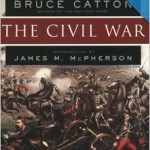 The Civil War by Bruce Catton. For years I have heard of Catton’s legendary status as a Civil War historian, but I’ve never got around to reading any of his work. That was until I raced through his somewhat brief overview (400 pages) of the war. What a feast! Catton is endlessly readable and clearly informed on the nuances at play throughout the War of Rebellion. This would be an excellent introduction for anyone unfamiliar with that most unfortunate period on our nation’s history.
The Civil War by Bruce Catton. For years I have heard of Catton’s legendary status as a Civil War historian, but I’ve never got around to reading any of his work. That was until I raced through his somewhat brief overview (400 pages) of the war. What a feast! Catton is endlessly readable and clearly informed on the nuances at play throughout the War of Rebellion. This would be an excellent introduction for anyone unfamiliar with that most unfortunate period on our nation’s history.
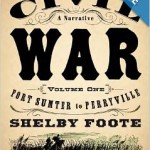 The Civil War Vol. 1: Fort Sumter to Perryville by Shelby Foote. Where Catton is brief, Foote is exhaustive – but not exhausting. This is careful historical narrative at its finest. Foote manages to provide all the necessary details – mini-biographies of key characters, political intrigues, battle plans/results, etc. – and still retain a pace that serves the overall story. I originally planned to move immediately on to Volume 2 in the series, but I think I need a break from the “Brother Against Brother” war. Reading military history is often an emotional endeavor, at least for me, and The Civil War is downright dispiriting. Yet, fascinatingly dispiriting . . . so I shall return.
The Civil War Vol. 1: Fort Sumter to Perryville by Shelby Foote. Where Catton is brief, Foote is exhaustive – but not exhausting. This is careful historical narrative at its finest. Foote manages to provide all the necessary details – mini-biographies of key characters, political intrigues, battle plans/results, etc. – and still retain a pace that serves the overall story. I originally planned to move immediately on to Volume 2 in the series, but I think I need a break from the “Brother Against Brother” war. Reading military history is often an emotional endeavor, at least for me, and The Civil War is downright dispiriting. Yet, fascinatingly dispiriting . . . so I shall return.
